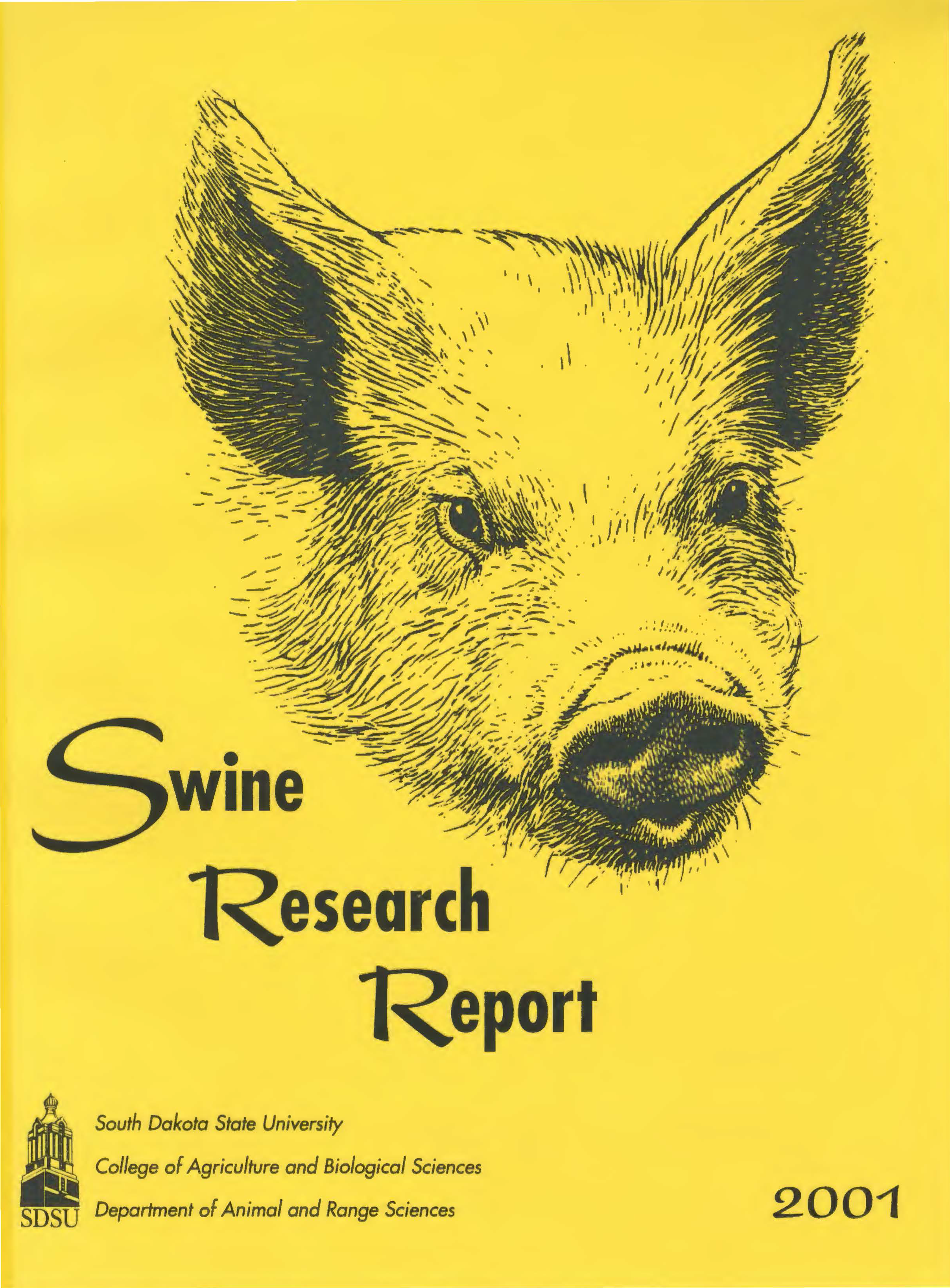Document Type
Article
2001-13
Publication Date
2002
Keywords
Lean growth, Pigs, Grower/finisher, Grower energy concentration
Summary
It is generally thought that pigs eat to satisfy their demand for energy and the amount of feed consumed is dependent on the energy density of the diet. Therefore, the amount of feed consumed when an energy-dense diet is fed will be lower than when a low energy diet is fed. Protein is the nutrient that is most frequently adjusted as energy density in the diet is changed. Energy intake influences the rates of deposition of lean and fat tissue. Nitrogen accretion is generally limited by voluntary intake of energy for pigs weighing less than 50 kg but not for pigs weighing over 50 kg body weight. When the rate of protein deposition reaches a plateau for a given gender and genotype of pig, further increases in energy intake result in an increased deposition of fat tissue. It is thought that lean gain/day is negatively correlated with plasma urea nitrogen (PUN) concentrations. In a diet with proper balance of amino acids, PUN levels will increase as the protein concentration of the diet exceeds the protein requirement of the pigs. Pigs with higher lean growth requir4e a higher concentration of amino acids When a group of pigs are fed a given protein concentration, pigs with a higher lean gain/day are expected to have lower PUN concentrations. To maximize efficient production, there would be merit to sorting pigs by their lean gain potential enabling the producer to better match the nutritional needs of each genotype with the pig’s ability to partition energy toward lean and away from fat deposition. The objective of this study was to evaluate the effect of energy concentration of the grower diet on the ability to sort pigs from a contemporary farrowing group based on high or low lean growth potential estimated by (a) lean gain/day (LGPD) based on the NPPC (1991) formula using gain and ultrasound measurements during the grower period of (b) PUN concentrations at the end of the grower period.
Number of Pages
7
Format
application/pdf
Language
en
Publisher
South Dakota State University
Rights
Copyright © 2001
Recommended Citation
Tembei, J.N.; Libal, G.W.; Hamilton, C.R.; and Peters, D.N., "Effects of Dietary Energy Concentration During the Grower Period on
the Accuracy of Determining Lean Gain Potential During the Finisher
Period for Pigs Selected During the Grower Period by Either a Lean
Gain Formula or by Plasma Urea Nitrogen Concentration as an
Indicator of Lean Gain" (2002). South Dakota Swine Research Report, 2001. 14.
https://openprairie.sdstate.edu/sd_swinereport_2001/14

